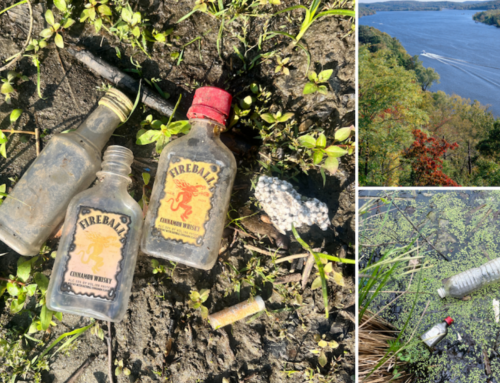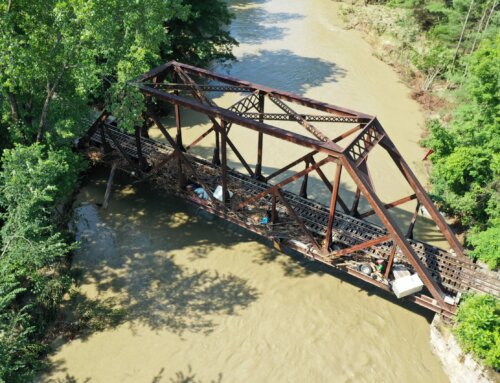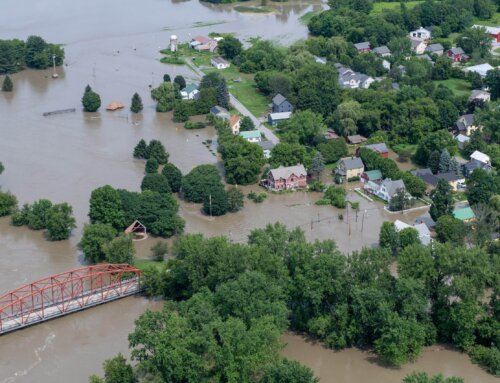Judge’s Decision Says Entergy’s Plan Was Too Sweeping,
But Allows Provisions That Will Be Basis for Appeal
SAXTONS RIVER, VT May 23, 2008 Conservation groups challenging Vermont Yankee’s plan to pump even warmer water into the Connecticut River are today reviewing Environmental Court Judge Meredith Wright’s decision that will modify Entergy Nuclear’s plan. In a 38-page ruling, Wright said that Entergy, the Louisiana-based owner of the nuclear power plant, would be required to limit its temperature increase during certain times: “For the period from June 16 through July 7, the requested 1 degree increase in the summer thermal regime of the existing expired permit is DENIED, unless the discharge can be managed so that it results in an actual measured temperature at the fishway sensor NOT TO EXCEED 76.7 degrees F.”
The court let stand other provisions of Entergy’s plan that will allow for increases in the water temperature in other months, which the conservation groups say remains troubling. Based on those provisions, lawyers for the conservation groups say they plan to appeal the decision to the Vermont Supreme Court.
The original Entergy request was to increase the temperature beginning May 15 and did not anticipate the use of sensors at the fishway at the Vernon Dam. The court’s action limits a March 2006 decision by the Vermont Agency of Natural Resources authorizing Entergy to release overheated water at levels that would increase the temperature of the entire river by 1 degree, on top of an earlier permit that allowed an increase of up to 5 degrees.
By discharging the overheated water at rates of up to 543 million gallons a day, the nuclear power plant is able to bypass its cooling towers, thereby increasing its profits at the expense of the river. The higher river temperatures hurt migratory fish populations, particularly salmon and shad, by inhibiting spawning and damaging the viability of eggs.
“We are pleased that the environmental court imposed additional safeguards to protect the river from increased temperatures in the summer season, and we are encouraged by the court’s repeated references to the opportunity to revisit the broader questions of the cumulative effects of Vermont Yankee’s discharge in the next round of permitting.” said David Deen, river steward with the Connecticut River Watershed Council (CRC), a lead opponent. Patrick Parenteau, a Vermont Law School professor who argued the case on behalf of CRC and other groups, said that while the decision limited some aspects of the discharge, it did not go far enough in applying the law to the facts of the case.
“We respectfully disagree with Judge Wright’s interpretation of the Clean Water Act in several key respects, and we will seek to correct the errors in the Vermont Supreme Court,” said Parenteau, senior counsel with the law school’s Environmental and Natural Resources Law Clinic, which brought the appeal on behalf of CRC, Trout Unlimited and the Citizen’s Awareness Network. “As we have said all along, the Connecticut River and its habitat should not have to bear the cost of increasing profits for Entergy, so it’s important that we keep up the effort.”
Deen noted that in 1992, the plant’s owners were granted a discharge permit that allowed Vermont Yankee to discharge overheated water at a rate that would increase the river’s temperature by as much as 5 degrees. That increase never required Entergy to monitor water temperature in the fishway at Vernon Dam. “The temperature increase was a mistake then and it is a mistake now,” Deen said, noting the dramatic decline of the shad population returning to the river above Vernon, where the plant is located, since the initial permit was issued.
According to Deen, “Entergy will now be required to provide real temperature information at the fishway. We will know the temperature regime and its impact on migrating fish. We will be able to hold them accountable if they exceed the court’s set temperature limit.” Deen said even the limiting of the discharge was gratifying given the resources that the nuclear plant’s owners spent fighting the appeal. He noted that Entergy brought five attorneys and four consultants to the eight-day trial, which was heard in the Windham County Courthouse in Newfane last summer.
For more on the case, go to: http://www.vermontlaw.edu/elc/index.cfm?doc_id=1370 or http://ctriver.org/river_news/river_news.html#VY
CONTACT:
David Deen, Connecticut River Watershed Council 802-869-2792
Patrick Parenteau, Vermont Law School, 802-785-4131
Diane Derby, Vermont Law School, 802-831-1106
Vermont Law School––a private, independent institution––is top-ranked in environmental law by U.S. News & World Report. VLS offers a Juris Doctor (JD) curriculum that emphasizes public service, a Master of Studies in Environmental Law (MSEL) degree for lawyers and nonlawyers, and two post-JD degrees, the Master of Laws (LLM) in Environmental Law and the LLM in American Legal Studies (for international students). The school also features innovative experiential programs and is home to the Environmental Law Center and the South Royalton Legal Clinic. For more information, visit www.vermontlaw.edu.
The Connecticut River Watershed Council has been a non-profit advocate for the 11,000 square-mile watershed of the Connecticut River emphasizing fisheries restoration, erosion prevention, land conservation, and water quality since 1952. For more information about our mission and to become a member, please visit ctriver.org.







